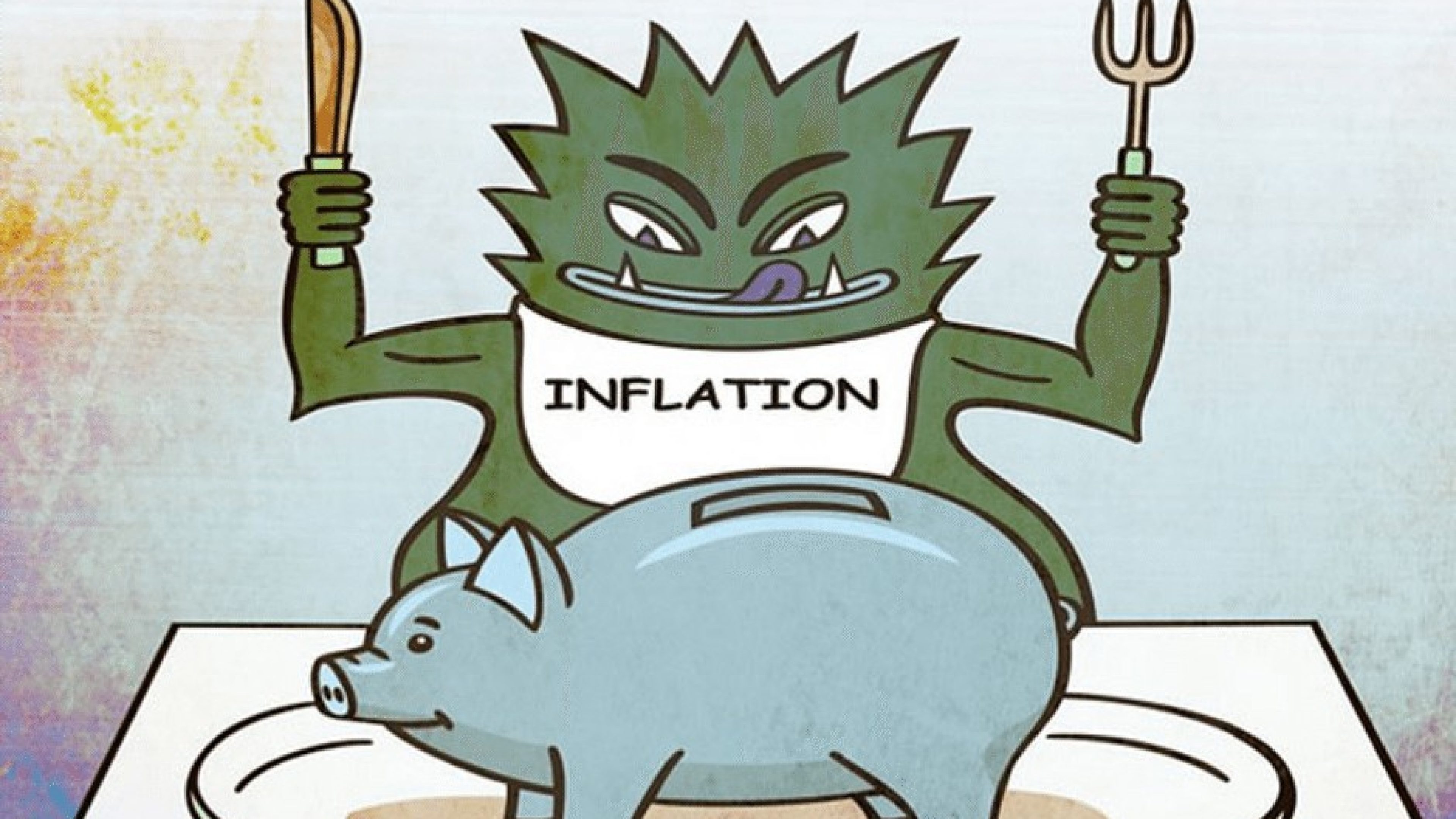Currency devaluation and a low interest-rate policy punish savers and restrict financial self-determination. With Europe’s economy growing again, are we headed back to inflation? Will the low interest-rate policy continue? And what can savers do? Swiss Life Chief Economist Marc Brütsch explains.
Mr Brütsch, there have been ubiquitous warnings of inflation in recent times. How does a pro explain inflation to a layperson?
Inflation always ultimately means that money is worth less.
So inflation consumes savings, and thus restricts financial self-determination?
You could put it like that; the purchasing power of a franc or a euro decreases. There is less you can buy with it.
What triggers inflation?
There are three triggers:
first, a poor monetary policy, which leads to a depreciation of the currency. In the past, for instance, they used to reduce the silver content of coins, while today it’s the central banks that are creating too much money.
Then there is demand shock: the demand for a commodity, like petrol, is much higher than its production. That leads to price increases.
And third, there is supply shock, as for example when a harvest or part of petrol production is suddenly lacking.
How can we protect ourselves from inflation?
We know from history that real assets, like property or shares, offer more protection against inflation than interest on savings or bonds.
Inflation is higher in Europe right now than it’s been since 2010/11. What are the main reasons for the rise?
The key basic reason is that the financial crisis has been more or less overcome, and now the so-called output gap is coming into play. Following the financial crisis there was tremendous surplus capacity, plenty of under-used machinery and high unemployment. This output gap seems now to have shrunk, what with the stronger economic growth, and capacities are being better used, which in turn causes providers’ so-called price setting power to increase: employees are once again able to demand higher wages, and manufacturers and service providers can charge higher prices. That’s what causes inflation.
There have already been warnings here and there that inflation could suddenly rise much more sharply than expected. Are such fears justified?
I think they’re exaggerated. What has happened now is that we’ve banished the danger of deflation: that is, the decline of the general price level, or what you might call the opposite of inflation. The central banks have clear inflation goals, they would stop the rates from going beyond that level. That’s what monetary policy is focusing on at the moment.
Between 1970 and 1974 inflation exploded, for instance in Switzerland, where it went from around 2 percent to almost 12 percent. And in the 1980s and 1990s, too, there were precipitous cost-of-living hikes. Is that still possible today?
I don’t think so, no. It would require the central banks to fail completely, not meet their goals and become passive bystanders.
The central banks in the west have been pursuing an extremely relaxed monetary policy for ten years now and have purchased bonds for thousands of billions of dollars, euros and francs. Won’t that inevitably lead to high inflation at some point?
Some economists have been saying that for ten years already, they were saying it as early as 2009, and it still hasn’t happened. That money never actually arrived in the real economy.
Why is that?
The banks were subject to much more stringent regulation in the wake of the financial crisis. They were required to get their balance sheets in order. They increased their equity and did not lend out the new money. Private households and companies, too, had to tighten their belts and take up fewer loans. This meant that the more relaxed monetary policy was unable to trigger any dynamic; there was no multiplier effect in the real economy, as in past times.
How long will the low interest-rate policy continue?
A long while yet. We expect that real interest rates in Europe will remain significantly below one percent over the coming years. Governments these days have every reason to keep nominal interest rates capped, so that they can refinance maturing debts more affordably. For finance ministers that’s virtually the best of all worlds; at any rate this policy is punished less by voters than is a painful programme of cost-cutting.
And what does that mean for savers?
Savers are among those suffering from the steps taken to overcome the financial crisis. Anyone solely dependent on salary income and interest on savings is inevitably on the losing side. Anyone with debt, on the other hand, such as a mortgage, or who has invested in real assets, has benefited.
Another global trend is the aging of societies. What effect does that have on inflation?
To date we have one example of an aging society at our disposal: Japan. All indications there are that the demographic change has a dampening effect on inflation. People are saving for longer, so there is more investment capital available at low interest rates.

Marc Brütsch
Marc Brütsch and the Swiss Life economic research team are the recipients of the “Forecast Accuracy Award Switzerland”, bestowed by the British research firm Consensus Economics – for the second time already. They made the most precise predictions of the economic indicators GDP growth and inflation. Following the Swiss National Bank’s releasing the franc from its peg, they did not bet on a recession triggered by a franc shock, but rather on a prolonged lean spell for companies in Switzerland. For this reason, their prediction for 2017 was more cautious than others’, which was then confirmed by low growth and inflation figures.
Copyright Image Header: Inflation consumes savings (image: wirc-icai.org)



